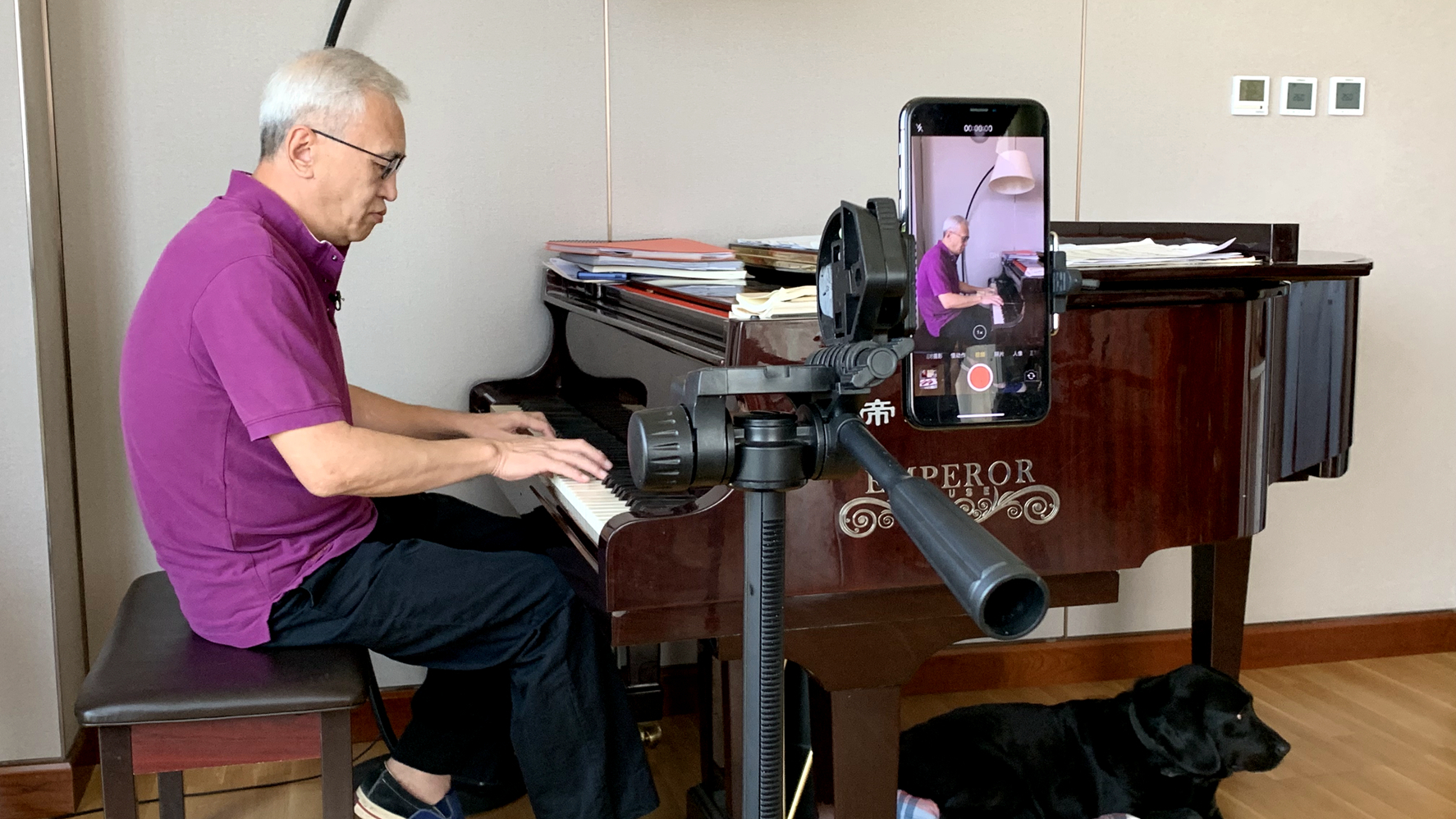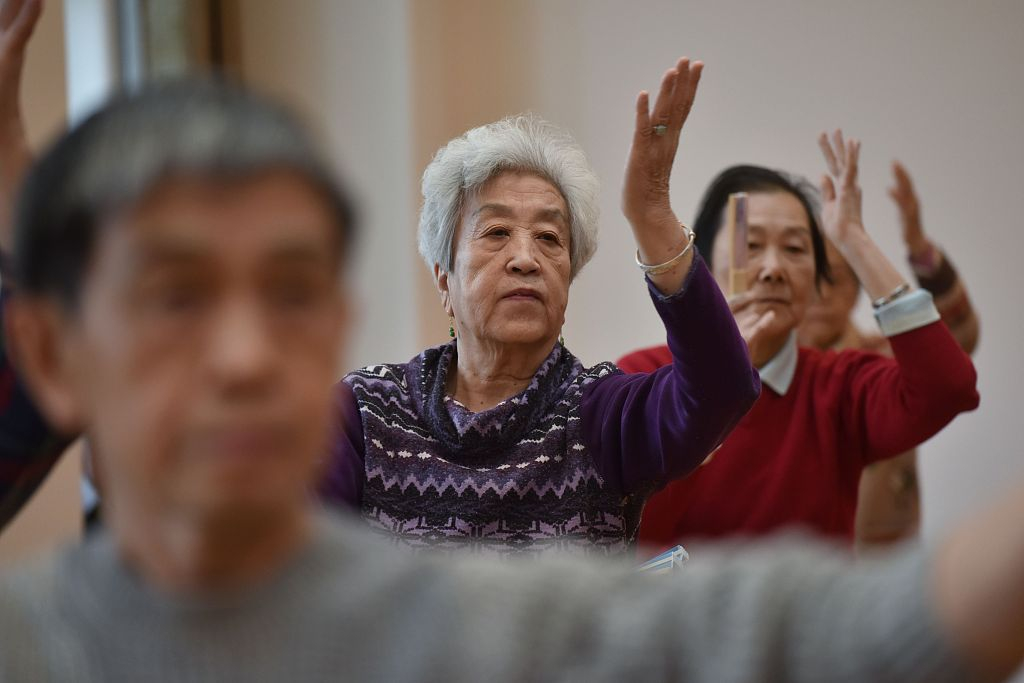

"I was genuinely surprised!" said Yang Su while taking a seat next to his piano.
Yang Su is a 59-year-old pianist. He was introduced to the short video-sharing platform Douyin, which is the Chinese version of Tik Tok, two years ago by chance, and uploaded his first 15-seconds-video. The video accumulated over 1 million clicks in a single afternoon and the account got over 10,000 new followers.
"Short video platforms have all sorts of content, but I think classical piano is still rare," said Yang. "Plus, being an elderly creator might have also brought some elements of surprise."
Yang now has accumulated over 2 million followers on Douyin, and even started an online piano course.
Yang's case is hardly a rare one. Since the most recent couple of years, China's elderlies are becoming increasingly active on short video-sharing platforms such as Douyin and Kuaishou.
Research by China Netcasting Services Association shows that growth for short video-sharing platforms among younger age groups is already showing signs of saturation and starts slowing down. On the contrary, the active users share for people over 50 is growing fast, from 6.5 to 11 percent in the first half of 2019.
China is facing a fast-aging population. However, AgeClub, a consulting firm focusing on the senior citizen market, thinks China's aging population might be an opportunity in disguise.

Elder residents take a dance class at the Yanyuan community for senior citizens, on the outskirts of Beijing, December 5, 2018. /VCG Photo
"Almost 300 million people over 50 are not online yet. These people will become a new market for the platforms to compete over," said Dong Mingjie, CEO and founder of AgeClub.
China's senior citizens are often perceived as dull and conservative. Duan said that some of them get popular by being more active and fun, thus showing contrast. Some of them can also provide emotional support or life hacks with their valuable life experience.
Duan pointed out that short video apps suit elderly users better since they are easier to access than reading a book.
Elderly creators have also started showing their economic value. As some of the elderly online personalities are getting popular, MCNs, or multi-channel networks, are entering the game. MCNs are teams behind many of the big-name online characters, providing production and marketing for them, generating incomes by means such as product placement.
Duan thinks the elderly market and operating an elderly internet personality have its unique features.
"They might not be able to work as intensively as the young online personalities," said Dean, adding, "The MCNs behind some elderlies online celebrities, also need to be more creative to differentiate them from young online celebrities."
After all, it's all about catching eyeballs.
Grannies and granddads might be a new growth segment for video-sharing platforms, but for seniors like Yang, video sharing is more about enjoying his golden years to the fullest.

Copyright © 2018 CGTN. Beijing ICP prepared NO.16065310-3
Copyright © 2018 CGTN. Beijing ICP prepared NO.16065310-3